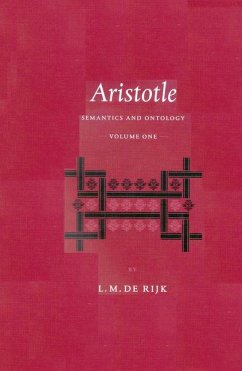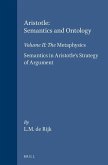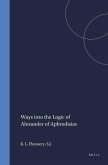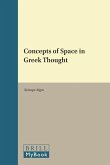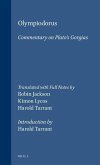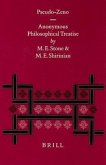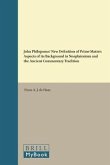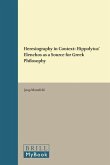This study intends to show that the ascription of many shortcomings or obscurities to Aristotle is due to the persistent misinterpetation of key notions in his works, including anachronistic perceptions of statement making. In the first volume Aristotle's semantics is culled from the Organon. The second volume presents Aristotle's ontology of the sublunar world, and pays special attention to his strategy of argument in light of his semantic views. The reconstruction of the semantic models that come forward as genuinely Aristotelian can give a new impetus to the study of Aristotelian philosophic and semantic thought.
Hinweis: Dieser Artikel kann nur an eine deutsche Lieferadresse ausgeliefert werden.
Hinweis: Dieser Artikel kann nur an eine deutsche Lieferadresse ausgeliefert werden.

